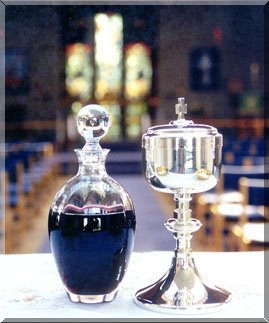 Tre Ore, the ‘three hours’ is the name of the solemn service we attend on Good Friday, from noon until 3pm. During this time we meditate on the Seven Last Words of Christ, the seven utterances Jesus delivered from the cross, which are selected from the Four Gospels:
Tre Ore, the ‘three hours’ is the name of the solemn service we attend on Good Friday, from noon until 3pm. During this time we meditate on the Seven Last Words of Christ, the seven utterances Jesus delivered from the cross, which are selected from the Four Gospels:
1. ‘Father, forgive them, for they know not what they do.’
2. ‘Truly I say unto you, today you will be with me in Paradise.’
3. ‘Woman, behold your son! ... Behold, your Mother.’
4. ‘My God, my God, why hast Thou forsaken me?
5. ‘I thirst.’
6. ‘It is finished.’ (tetelestai, or to be more accurate 'τετέλεσται')
7. ‘Father, into Thy hands I commend my spirit.’
Cursed, beaten and forced to carry His own cross, Christ’s crucifixion on ‘Good Friday’, is the blackest day in Christian history.
Good Friday leads us to focus on the death of the innocent. Perhaps as we pray today we will reflect on the crucifixion and will be aware, perhaps uncomfortably, of a resonance between the unjust death of Jesus and the many unjust deaths in our world.
There are many opinions about the origins of the term Good Friday. Some scholars argue that the word ‘Good’ is an abbreviation of ‘God.’ And early Christians commemorated the sad event by calling it ‘God's Friday.’ Others claim that ‘good’ signifies the bounty of blessings we’ve received through salvation itself that Christ won for humankind in His sacrifice.
Ukraine, Syria, Moldova, Romania and yes, even the Americas - the countless homeless and starving children who will simply slip away to nothingness in the cold, it’s too easy to simply turn our minds to chocolate eggs, football matches and whether we have the latest fashion accessory. Sadness exists just as it always has - the innocent are killed now, just as then, either because they present a threat, or because they simply get in the way or are instruments of mankind’s perversions. Innocent death provokes outrage, and with it a longing for justice, and sometimes revenge.
We’ve become so accustomed to media interviewers sticking microphones into the faces of those whose loved ones have been unjustly killed and asking ‘what do you feel?’ This always seems so perverse and tasteless - we know what the injured must feel, and it seems cheap to expose their feelings of outrage and hate just for our own salacious entertainment.
And yet perhaps we want the interviewer to ask, because we’ve come to believe that only by expressing hatred the living can do justice to the innocent dead. We crave for the bereaved to be angry and implacable. We even use religion to sanctify these feelings. In medieval times Good Friday was a day when Christian mobs assaulted the Jews because the Gospels said their ancestors were to blame for the death of Jesus.
But if that is what Good Friday is about then the Church is no better than the mobs. The point of this day is not that Christians become incited about the Crucifixion and vow to destroy Christ’s enemies. It’s a day for repentance and worship. What does that say to the innocent deaths in Afghanistan, Romania, Moldova, and all the other personal horrifying murders we know about and mourn for? Is it only the bereaved who must speak for the dead?
What would happen if the dead came back and spoke for themselves? And what does it say about those who had killed them, about us? Would they come back in spirit? Would they return seeking revenge, or would they bring us a message of forgiveness and reconciliation from God?
It’s an important question because on Good Friday the Church calls us to see death - all death - through the cross and resurrection of Jesus. The dead are gathered into Christ in their dying and the Christian hope is that they are given back to us in His resurrection.
When Christ returned from death He came both bearing the marks of the cross, and bringing the forgiveness of sins. He offered the same peace to those who loved Him and to those who had betrayed Him. Could we allow the innocent dead to bring us peace this Easter?
Whatever your faith, try investing in forgiveness. It often isn't easy, but you'll be amazed by the weight it lifts from your heart!
posted from Fr Bills Collection LR Imádkozunk az egészsége
Labels: The meaning of Good Friday, Tre Ore, what are the three hours, What did Jesus say on the Cross, What is Good Friday, What is tetelestai
 Tre Ore, the ‘three hours’ is the name of the solemn service we attend on Good Friday, from noon until 3pm. During this time we meditate on the Seven Last Words of Christ, the seven utterances Jesus delivered from the cross, which are selected from the Four Gospels:
Tre Ore, the ‘three hours’ is the name of the solemn service we attend on Good Friday, from noon until 3pm. During this time we meditate on the Seven Last Words of Christ, the seven utterances Jesus delivered from the cross, which are selected from the Four Gospels:


0 Comments:
Post a Comment
<< Home